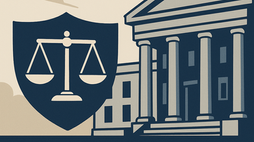


Gregory T. Moro, Esq.
Dec 31, 20257 min read



Gregory T. Moro, Esq.
Nov 7, 20254 min read



Megan R. Moro, Esq.
Oct 26, 20254 min read



Gregory T. Moro, Esq.
Oct 7, 20255 min read



Gregory T. Moro, Esq.
Sep 27, 20252 min read



Gregory T. Moro, Esq.
Sep 3, 20255 min read



Megan R. Moro, Esq.
Aug 23, 20253 min read



Gregory T. Moro, Esq.
Aug 8, 20254 min read



Megan R. Moro, Esq.
Jul 25, 20254 min read



Gregory T. Moro, Esq.
Jun 29, 20253 min read



Megan R. Moro, Esq.
May 31, 20254 min read



Gregory T. Moro, Esq.
May 23, 20255 min read







Comments